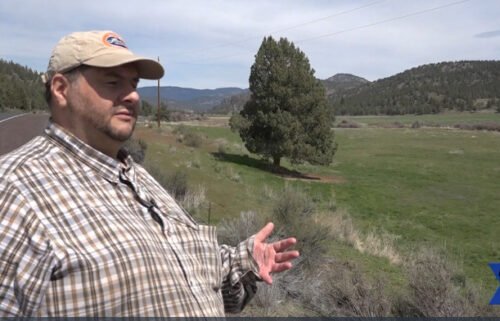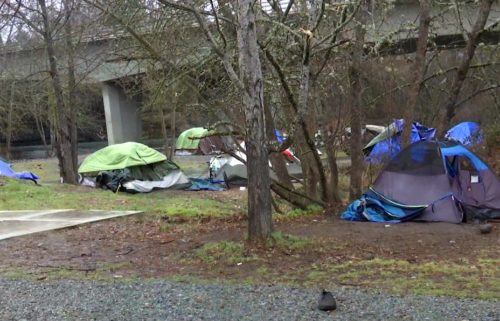Deschutes County Illegal Marijuana Enforcement Team reports on efforts
'We really had no idea how large these organizations were'
BEND, Ore. (KTVZ) -- Deschutes County's Illegal Marijuana Market Enforcement Team gave an update Wednesday to county commissioners on its first year, outlining the successes, challenges and things they've learned.
“I think at the start of the program, we really had no idea how large these organizations were,” Sgt. Todd Kloss said.
Last year, the team, funded in 2019 by a $436,000 2-year state grant, was involved in 57 cases involving illegal marijuana production, making 26 arrests and seizing over 19,000 pounds of illegal marijuana.
An estimated $10 million worth of illegal marijuana products was seized by the team, which is a partnership between the sheriff's and district attorney's offices and Bend police.
Kloss also introduced new two new enforcement team members, Detective Dustin Miller and management analyst Daniel Martel.
One of the main challenges Kloss has seen while working on the enforcement team is people growing marijuana illegally, with hemp permits.
“We are hearing information in the community that there are people exploiting the hemp program to grow illegal marijuana,” Kloss said.
Hemp production must contain 3% or less of THC concentration, while marijuana production allows for 3% or more THC concentration.
Kloss also mentioned the various loopholes that hemp permits contain:
-Private labs can be used to test cannabis plants to verify THC levels; the state has no official testing lab.
-Hemp plants are tested while the plant is young, resulting in low THC levels, although growers allow the plants to fully develop, increasing the THC concentration.
-Medical cannabis growers can avoid oversight in their production. It just depends on the number of patients the growers are distributing to.
The Oregon Health Authority and the Oregon Department of Agriculture oversee legal marijuana production but have just four inspectors for the entire state. Deschutes County at one point had about 2,000 grow sites for medical marijuana.
“When they are a grow site for two, they are not inspected by OLCC. They fall back onto those four investigators through the state,” Kloss said.
Although he may have suspicions on some people he believes might be actually growing marijuana illegally while holding a hemp permit, once the permit is issued, he wouldn't be able to conduct a search without a warrant.
Kloss also said the team is developing a place online that will help the public understand the differences between legal and illegal marijuana grows and what they can do to help out law enforcement.
He said an informative web page will be available soon to the public.




